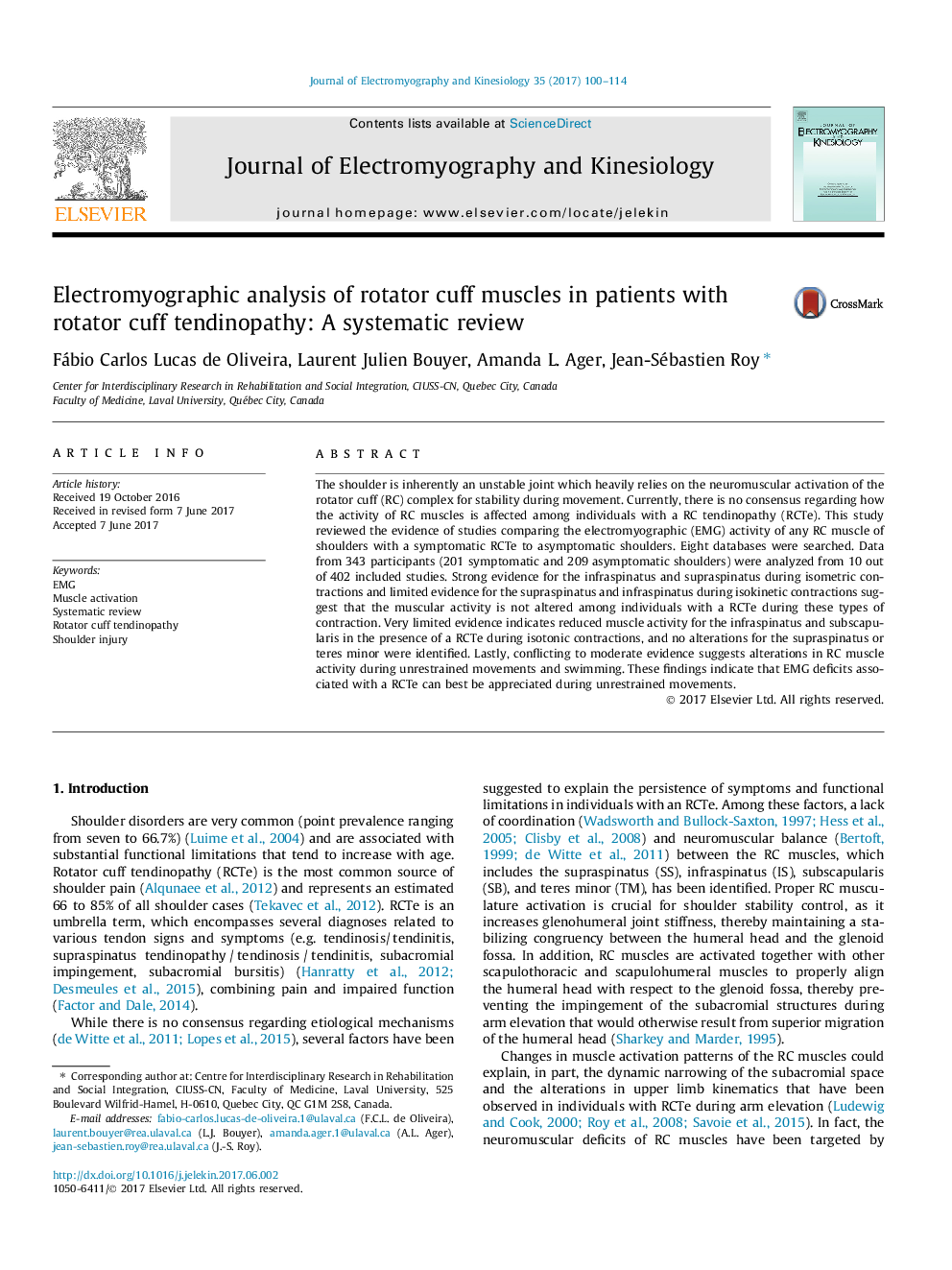| Article ID | Journal | Published Year | Pages | File Type |
|---|---|---|---|---|
| 5709504 | Journal of Electromyography and Kinesiology | 2017 | 15 Pages |
Abstract
The shoulder is inherently an unstable joint which heavily relies on the neuromuscular activation of the rotator cuff (RC) complex for stability during movement. Currently, there is no consensus regarding how the activity of RC muscles is affected among individuals with a RC tendinopathy (RCTe). This study reviewed the evidence of studies comparing the electromyographic (EMG) activity of any RC muscle of shoulders with a symptomatic RCTe to asymptomatic shoulders. Eight databases were searched. Data from 343 participants (201 symptomatic and 209 asymptomatic shoulders) were analyzed from 10 out of 402 included studies. Strong evidence for the infraspinatus and supraspinatus during isometric contractions and limited evidence for the supraspinatus and infraspinatus during isokinetic contractions suggest that the muscular activity is not altered among individuals with a RCTe during these types of contraction. Very limited evidence indicates reduced muscle activity for the infraspinatus and subscapularis in the presence of a RCTe during isotonic contractions, and no alterations for the supraspinatus or teres minor were identified. Lastly, conflicting to moderate evidence suggests alterations in RC muscle activity during unrestrained movements and swimming. These findings indicate that EMG deficits associated with a RCTe can best be appreciated during unrestrained movements.
Related Topics
Health Sciences
Medicine and Dentistry
Orthopedics, Sports Medicine and Rehabilitation
Authors
Fábio Carlos Lucas de Oliveira, Laurent Julien Bouyer, Amanda L. Ager, Jean-Sébastien Roy,
